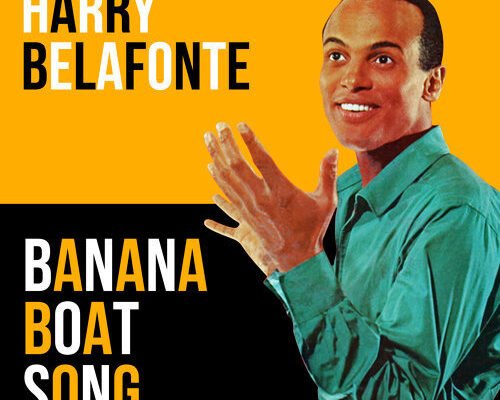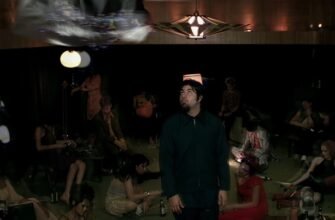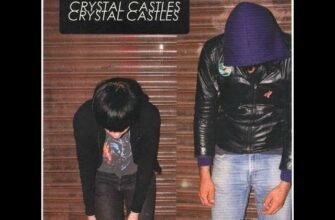A funny song about a banana boat blew up society’s reaction last century. The track made you fall in love with it. “Banana Song” was sung every time you got a chance. The meaning behind the song “Banana Boat” is rooted in Jamaica. It is so light and airy that it seems that there is nothing terrible here. But if you read the words and the text of the translation, you can see that the meaning of the text is about hired workers who do everything possible to earn money and feed their families. What other secrets does the “Banana Song” contain, and what is its primary meaning?
The story behind the song “Banana Boat Song.”
The song originates from the old Jamaican folk song “Day dah light,” which talks about shivering (loading and unloading dockers). The dock workers loaded bananas at night and sang about their hard work. Perhaps the song just helped them pass the time and gave them strength. The song changed in words if some performer covered it. The meaning, of course, did not change, but the lines and rhyme were altered. It is worth noting that the original “Banana Song” is considered a Jamaican folk song.
The main idea behind the song’s creation was simple: the workers of complex and responsible work with bananas had to somehow speed up by loading bananas. They came up with an occupation for themselves – they composed a song. So, it became famous, carrying a deep meaning in every word. It can even be said that the “Banana Boat Song” has become a favorite and an anthem among many workers who stay overnight and carry heavy loads as cargo.
What does “Banana Boat ” mean?
It is not so easy to realize that the text of this song, in general, does not sparkle with happiness and fun. It is unknown what is to blame – the bright sun or the warm sea – but Caribbean folk music has always sounded significant and positive. Not without reason, many still perceive it as a light relaxing background, rarely thinking about the content.
Why is the name still “Banana Boat Song”? It’s simple: workers (most likely enslaved people or hired people) perform overwork. It’s hard for them. Their backs hurt, and their hands bleed, punctured by banana leaves. As far as we know, Jamaica is full of bananas and is very tasty. The banana business is thriving there, so you must somehow deliver this fruit. It is too expensive to hire transport vehicles, and it is better to use the labor force of poor people who are ready for a couple of coins to take fruits and load them into a transport vehicle. Here is the song’s title transcript: a banana boat, from which the heads of singing people are heard. It turns out that the funny banana title of the song hides painstaking work, a heavy burden, and the desire to go home to the family with the money earned quickly.
Understanding the meaning behind “Banana Boat Song.”
A question-and-answer song, the lyrics are about workers loading bananas onto a ship—and they do it at night to avoid the hot rays of the tropical sun. And now morning has come, tired hard workers want to go home but do not disperse. They have to wait until the “Tallyman” (analogous to the receiver-bookkeeper) does not conduct a complete inventory of the cargo. And now, it’s worth analyzing the song line by line to understand the complete picture and the meaning of the song itself.
“Day-o, day-o! Day delight, and I wanna go home”. People work from morning to night, and they work hard. And all enslaved people are in the hope of earning at least some money for food and living. People only dream of how to get home, looking forward to finishing work. But while the duty does not let them go, they cheer themselves up with these lines.
“I say, load the banana boat all night long.” Despite the desire to be home as soon as possible (someone dreams of a soft bed, and someone wants to cuddle up to the chest of their beloved woman), the workers work not only diligently but also painstakingly. They do their job conscientiously, without missing any details. This, by the way, is very important because, for poorly done work, they face either a harsh reprimand, deprivation of their earnings, or something worse – for example, physical violence. After all, this is how enslaved people were treated if something was done wrong, not in good faith.
“Hey, all of your workmen sing this song.” The most important thing here is the unity of the spirit. In other words, so that not one person sings, but everybody. Everyone must pick up this song. A cohesive society is already a successful team, and the secret of success is performance. This is very important. That is why the workers advise everyone to sing along to be a whole and indivisible team.
“When I get some money, gonna quit so soon.” Of course, the only dream of a banana song is to earn money. For some, it will be high. For others, it will not be as high as they would like. But in the end, everyone will be satisfied with the work done. Everyone promises to quit what he is doing as soon as possible. But this is just a promise, nothing more. The banana boat pays well so that people do not leave here and are unlikely to go.
“Pack up all my things, and I go to sea.” The surest solution is to go to sea, where no one sees or looks for a person. Reservoirs always relax and give a vast unexplored space. It is not for nothing that many are proud of such a profession as a sailor. The sea calms bring to life, relaxes as much as possible, and removes all problems. Perhaps the workers dream of going to sea as soon as possible.
Despite this, most white listeners found the song amusing, and parodies were written more than once. For example, in 1972, Dutch comedian André can’t Duyne recorded a version that asked a funny question (“Why are bananas crooked”) and gave an equally funny answer (“Otherwise they won’t fit into the peel”). Funny and sad at the same time! The song has been covered many times, but the best version of the performance is the folk one.
Since “Banana Boat Song” is a folk song, there are many variations. The song was first recorded by Trinidadian singer Edric Connor in 1932 under the title “Day Dah Light,” In 1954, it was recorded by Jamaican singer Louise Bennett. It was these versions that the American singer Harry Belafonte took as a basis, and he was familiar with Jamaican folklore firsthand. Although Belafonte was born in New York’s Harlem, his parents were from the Caribbean. Life in Harlem was so hard that eight-year-old Harry’s family had to go to his mother’s homeland, Jamaica, for five years.
Harry Belafonte said this, similar to the song and its profound meaning: “Most of my family in Jamaica worked in factories and harvested bananas, sugarcane, and other crops. Singing was an important part of the culture and helped ease the tedious work.” Do you agree with his statement about then life?
In 1956, the singer decided to pay tribute to his childhood and recorded an entire album called “Calypso” (calypso is a musical style that was formed in the Caribbean). It is believed that this record caused a wave of interest in Caribbean music in the United States. Well, the main hit of the album was the same “Banana Boat.” In 1957, the single with the song reached number 5 in the US and number 2 on the UK charts.
Harry Belafonte explained the meaning of the text in the song in this way; he liked it because he sang as if about himself. “At that time, there were many stereotypes about the inhabitants of the Caribbean – they say that they are all lazy, constantly drinking rum and having sex. I decided to show these people from the other side. I sang a classic work song about a man who works all night for the equivalent of a sip of beer”.
It turns out that the “Banana song” is not enthusiastic and upbeat music; it is a cry from the heart about how people want to be free. With all their hearts, they want to be close to their loved ones; they want to get enough sleep and take a piece of bread home. But they cannot afford it because the more they work, the more they earn. Don’t you notice that the song is very relevant in our time? The similarity is simply incredible with what is happening in reality! Comparing the “Banana Boat Song” with what is happening now, we can say that this song is the anthem of today’s reality. It remains only to wait until the track becomes popular today, also to sing it in the evening at the workplace.









The above interpretation starts out with promise, but quickly runs off track by the writer’s talk of enslaved people and unnecessary moralizing , instead of sticking to an an accurate interpretation of the lyrics. Here’s my personal thoughts on the same song.
In short, the song speaks of working all night carrying bananas, with a drink of rum ; so we can imagine hard work, loading bananas on a cargo ship, the workers only break or refreshment being a drink of rum. Hard physical labor, all night long suggests low pay and a long grueling work period, and not many better opportunities in those days, so clearly a third world country in an era before mechanization, and yes, such workers are always poorly paid, but any mention of enslavement in this early 20th century era is nonsense; check your history first before making erroneous claims.
Next, there’s the phrase “ six foot, seven foot, eight foot bunch” which gives us a picture of the scale and weight of the work; bunches of fruit as large or larger than the workers carrying them. That’s hard, heavy work.
Next, “lovely bunch of ripe bananas- hide de deadly black tarantula “ give us an insight into the dangers of the job; you’d have to carry a load that big in your arms, more likely on your back, so each time you’d reach for your next bunch, you can bet they kicked the stem or shook it a few times before shouldering the load of bananas to avoid lingering illness or even death by spiderbite. Remember, they’re working at night in a hot humid climate, most likely to keep the bananas from ripening in the heat and because the work would be much worse in the heat. They’re probably sweating and wearing shorts and a teeshirt, maybe even bare backed, so absolutely no protection from a spider bite, and tough luck if you got bitten; no insurance or hospital plan.
Then there’s the tallyman, clearly the boss that each worker has to answer to. Tally means to count, so I imagine that each worker is paid only for exactly what they carry, and their pile must be counted before they can be paid. This makes me wonder exactly how the process worked: I’d guess that the bananas were carried from a truck to the ship, but did each worker build his own pile on pallets on the docks for tallying, or did they carry each bunch up a gangplank and the tallying done on board?
So, this interpretation stays to the facts, with a little deductive reasoning, in an attempt to envision what was actually happening. While I am in absolute solidarity with the underprivileged and underpaid (being one myself), if we’re going to try and interpret something, we have to set our personal views and moralizing aside and try to stick to the facts, to the best of our ability. History is facts: if we allow opinions, weather well intentioned or not to distort facts, we are moving away from the truth.
No offense meant. Peace.